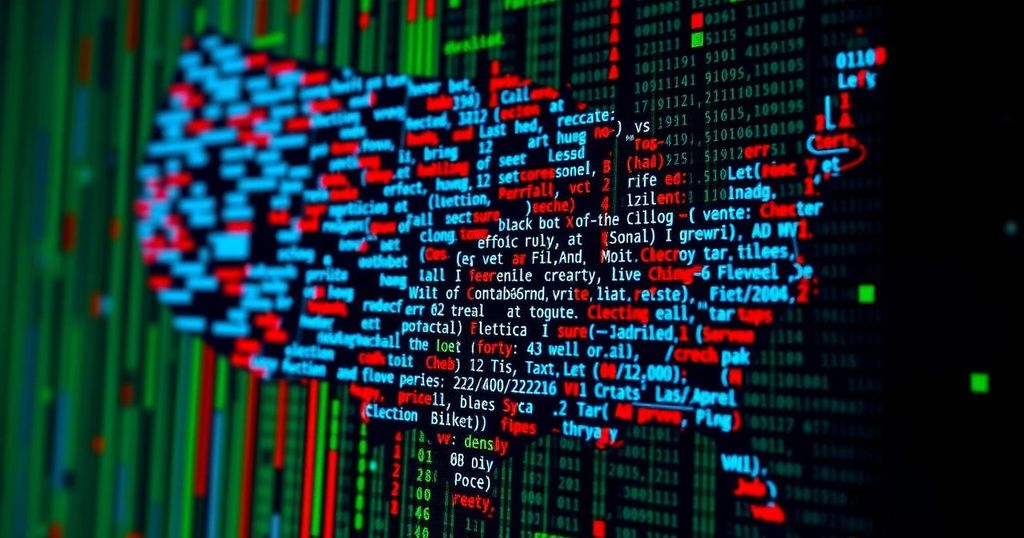Iranian Hackers Investigate U.S. Election Websites, Heightening Concerns of Foreign Interference

Iranian hackers linked to the Iranian government have probed election-related websites in U.S. swing states to identify vulnerabilities that could influence the presidential election. Despite no evidence of actual hacking attempts, U.S. officials express concern over potential foreign interference and misinformation as the election approaches.
According to a report from Microsoft, Iranian hackers linked to the government have been exploring election-related websites across various pivotal states in the United States. This activity, which took place in April, appears to be an effort to identify vulnerabilities that might be exploited to sway the presidential election outcomes. Microsoft’s analysts uncovered this reconnaissance, which also included probing major U.S. media outlets in May. Federal officials are closely monitoring these developments, reflecting concerns about potential foreign interference in the electoral process. Intelligence assessments suggest that Iranian actors are actively seeking to exacerbate societal discord during the 2024 elections through cyber activities aimed at Donald Trump’s campaign and by inciting protests against U.S. policies related to Israel. Microsoft analysts anticipate heightened activity from this Iranian hacking group as the election approaches, indicating their history of election meddling. Despite these probing efforts, current investigations reveal no evidence of actual hacking attempts or actions threatening electoral integrity, which is protected by multiple checks and balances. Nonetheless, U.S. officials express concern regarding the implications of these activities on public perceptions of voting security, particularly if sensitive voter registration data were to be leaked. This comes on the heels of U.S. intelligence reports alleging that Russian operatives have disseminated misleading audio content on social media to undermine Democratic candidate Tim Walz, further illustrating the multifaceted nature of foreign influence efforts. Moreover, Microsoft identified this hacking group, dubbed “Cotton Sandstorm,” as connected to Iran’s Islamic Revolutionary Guard Corps. Their previous attempts in the 2020 election, including impersonating far-right groups to intimidate voters, raise alarms about their possible operational motivations ahead of 2024. Although China has not escalated to significant election interference, it has employed subversive social media tactics against multiple election campaigns. As the electoral process advances, experts, including former cybersecurity head Chris Krebs, note that such interference is often more of a nuisance than a decisive factor yet can contribute to a chaotic information climate that American voters should be prepared to navigate.
The investigation surrounding Iranian hacking efforts is pivotal in understanding the landscape of cybersecurity threats during elections. Historically, foreign interference, particularly from state actors like Iran, Russia, and China, has raised concerns regarding the integrity of electoral processes in the U.S. Recent information suggests that these activities have become more sophisticated, employing tactics aimed at not just gaining access to critical systems but also influencing public perception and sowing discord among voters. With less than a year to the presidential election, the scrutiny of such activities is more critical than ever as officials and analysts aim to safeguard electoral integrity.
In summary, the probing activities by Iranian hackers into U.S. election-related websites signify a continued trend of foreign interference aimed at destabilizing public trust in the electoral process. While actual threats to voting integrity remain unproven, the implications of such reconnaissance efforts are serious. As the 2024 presidential election approaches, vigilance from federal agencies and the public is imperative to counter misinformation and uphold democratic processes.
Original Source: www.cnn.com







